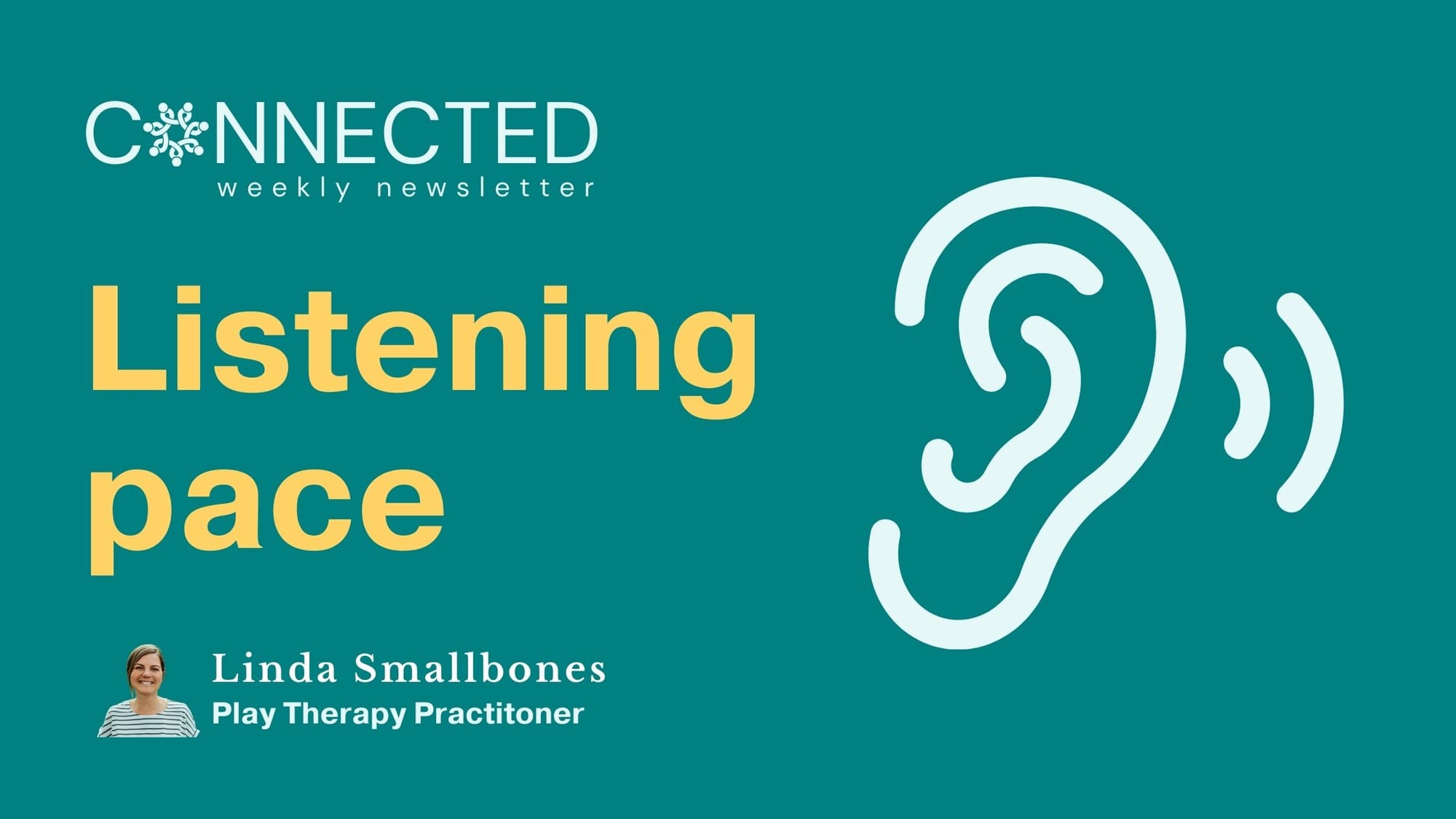Listening pace
Discover how slowing down to listening pace can transform your relationships, reduce anxiety, and enhance your awareness of self and others.

I was journalling last week and I found myself writing Life is more fruitful when you slow down to the pace of listening.
Huh! That was an interesting thought that seemingly just leapt through my pen. What is the pace of listening? Or as I have now decided to call it—listening pace? Here are some of my thoughts on that.
When things are very busy, I can be very task-orientated and less people-orientated. I can work quickly and when I am under time pressure, I can move quickly and be in too much of a rush. Rushing and moving quickly—whilst very necessary in cases of emergency response—are not conducive to listening.
[Image Placeholder: listening-pace-2.jpg]
Listening pace is slow. It is putting aside busyness. For me, it is consciously moving myself from task-orientation back to people-orientation. There is a quietening of the mind required to listen, to focus on who is in front of us and not on the myriad of distractions around us.
I work at a school two days a week and I go to the younger children’s classrooms to fetch them. They are in no hurry, these little ones. They walk at the pace of their choosing, which is slow. This is listening pace. I match my stride with theirs so that I can tune in to them. I used to begrudge the 3 or 4 or even 5 minutes it can take to walk this walk. It’s taken me a while to realise that that walk to and from the classroom is just as valuable therapy time as being in the playroom. Those children teach me to walk at listening pace, and it’s never too slow. It’s just right for them. Listening pace is about opportunities for connection.
[Image Placeholder: listening-pace-3.jpg]
Listening pace is also about noticing yourself. Noticing your own body, emotions, and needs. You can’t pay attention to yourself when you are racing through life. You are worth listening pace too.
[Image Placeholder: listening-pace-4.jpg]
Have you ever noticed that the more busy you are and the more you rush, the more anxious you feel? When you’re busy, slow down. What if going at listening pace can accelerate you forward more in ideas, productivity, and clarity of thinking than rushing can?
The pace of listening has much to teach us, both for ourselves and for our relationships with others. Will you give it a try?